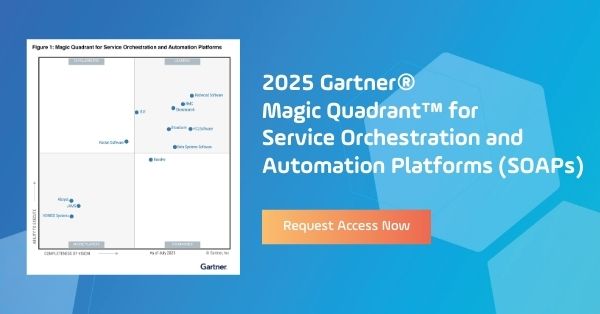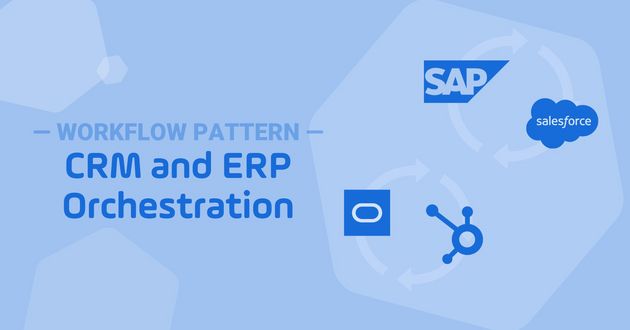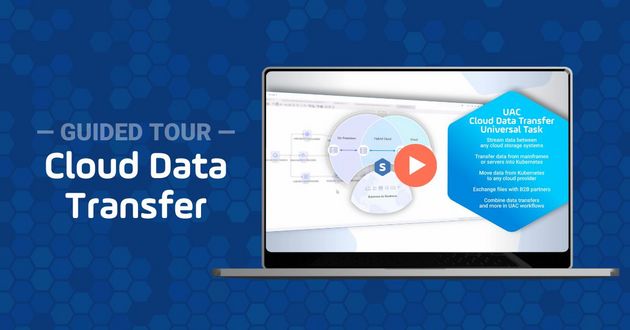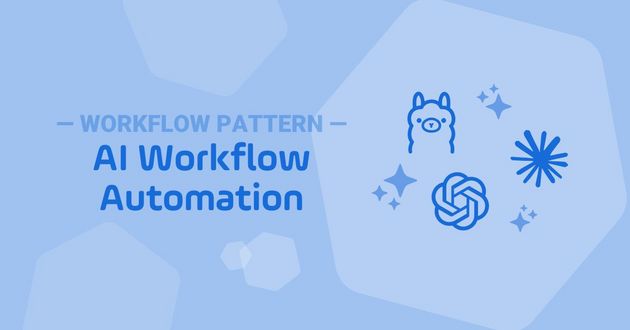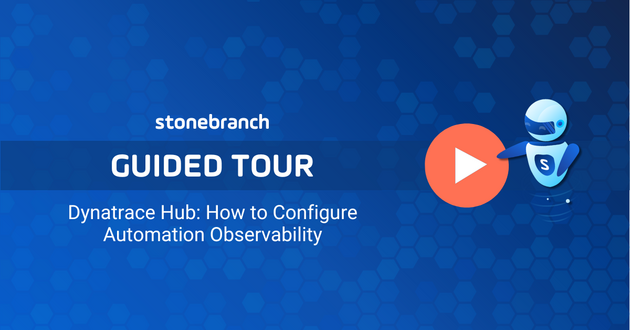Stonebranch Online 2022 Opening Keynote
The first week of Stonebranch Online 2022 has come to a close — are you watching along with us? Here’s a refresher on our opening keynote.
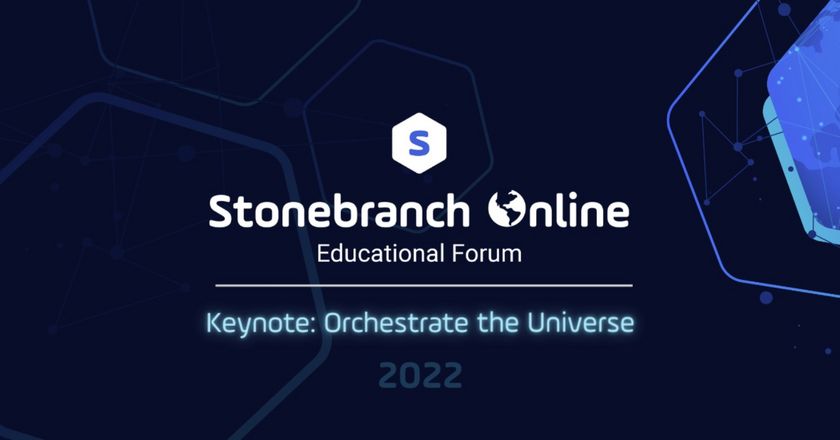
Session 1 – Opening Keynote: Orchestrate the Universe
Our CEO here at Stonebranch, Giuseppe Damiani, was pleased to open Stonebranch Online 2022. He began by thanking his team, “the driving force behind our growth today,” before introducing this year’s topic: Orchestrating the Universe.
Catch up on the recording here.
Orchestrating the universe, he explained, simply refers to the orchestration of any application or platform — whether it be on-prem, distributed, or in the cloud. Speaking on this topic were Peter Baljet (Stonebranch CTO) and Colin Cocksedge (Stonebranch Product Director), two incredibly knowledgeable and passionate orchestration experts.
Guiseppe introduced Peter Baljet, and Stonebranch Online 2022 was underway.
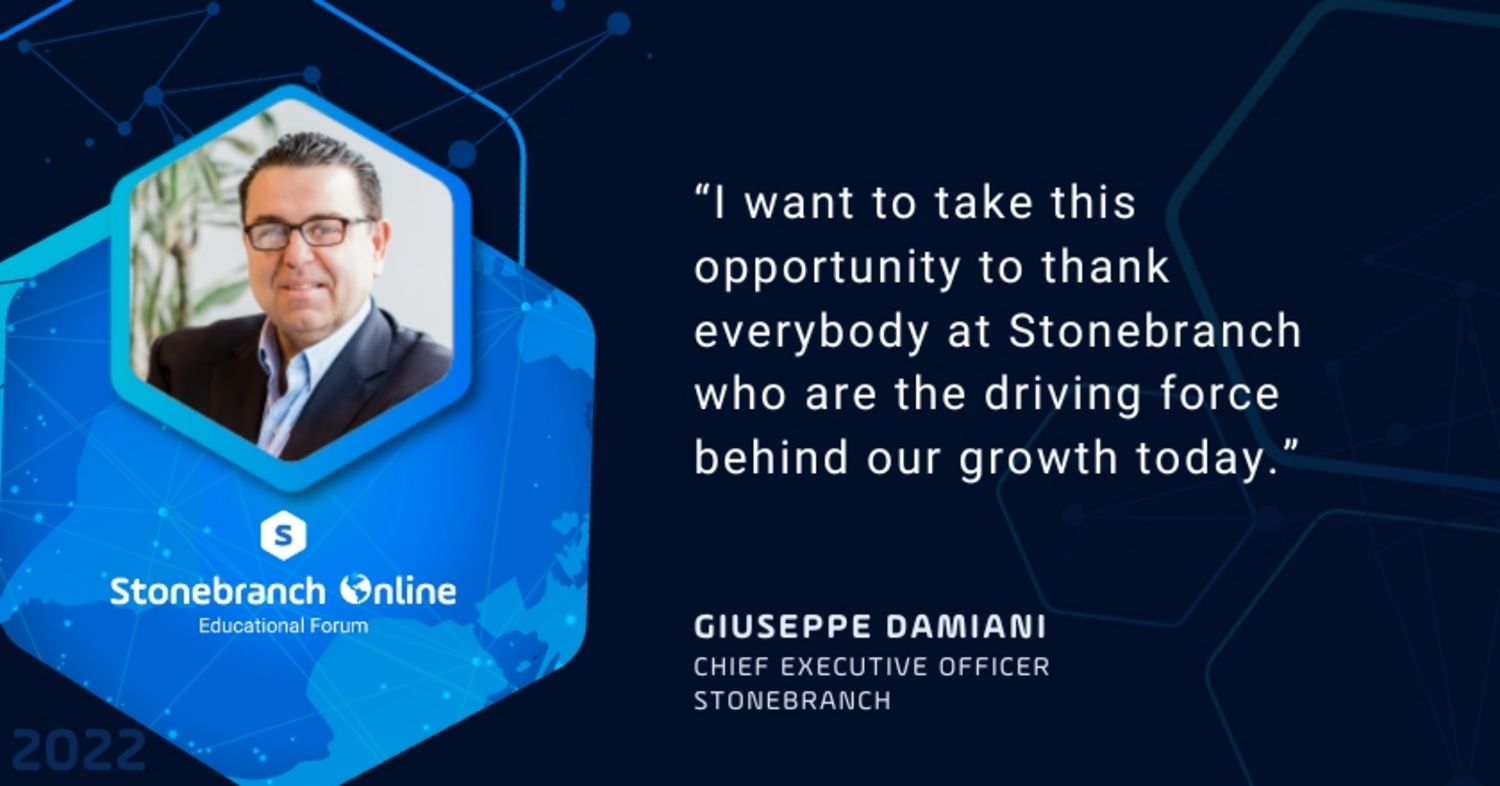
Orchestration Industry Trends
Peter Baljet, Stonebranch CTO, followed Guiseppe to talk us through some of the current orchestration industry trends. A lot has shifted within the industry, even within the space of a year; Peter unpacked the latest trends, some of the challenges they present, and areas of strategic focus that can move toward more streamlined hybrid orchestration.
Current Trends in Orchestration
Becoming increasingly prevalent within our industry is the adoption of hybrid IT. Peter explained that ease of access, low cost, and scalability are bringing these services into a much more attractive light. The underlying trends he identified were:
Systems Being Integrated with SaaS
It’s now easier and more cost-effective than ever for companies to build new cloud applications with specific capabilities. Non-IT employees are also empowered to create apps and automation since the skill barrier to entry has been lowered. The different areas within this trend, Peter explained, include:
- Infrastructure as a Service: companies are lifting and shifting existing applications or deploying new applications into the cloud, taking advantage of their elastic infrastructure in terms of computing, storage, and network.
- Platform as a Service: cloud-native services are providing technology for specific purposes; groups and teams can use them for just what they need, and enjoy a user-friendly, intuitive experience.
- Software as a Service: software companies take care of all operations and infrastructure — so companies only have to use the application, and are never required to interact with the complex background operations.
Most Companies are Using Hybrid IT
Peter shared the recent 2022 Global State of IT Automation report, in which it was found that:
- 30 percent of businesses still use on-prem systems only.
- 23 percent are cloud-based only, or have a strategy in place to that end.
- 50 percent are in the hybrid IT space with a mix of on-prem and cloud applications.
Complex IT Landscapes are Developing
90 percent of organizations are using more than one automation provider; 30 percent are using at least four. This is where orchestration comes into play: by housing all applications — whether cloud or on-prem, and regardless of provider — under the same roof.
Challenges Posed By Current Trends
In light of the latest trends, Peter explained that a number of new challenges have risen to the surface; namely, the time, energy, and resource cost associated with having a complex IT landscape.
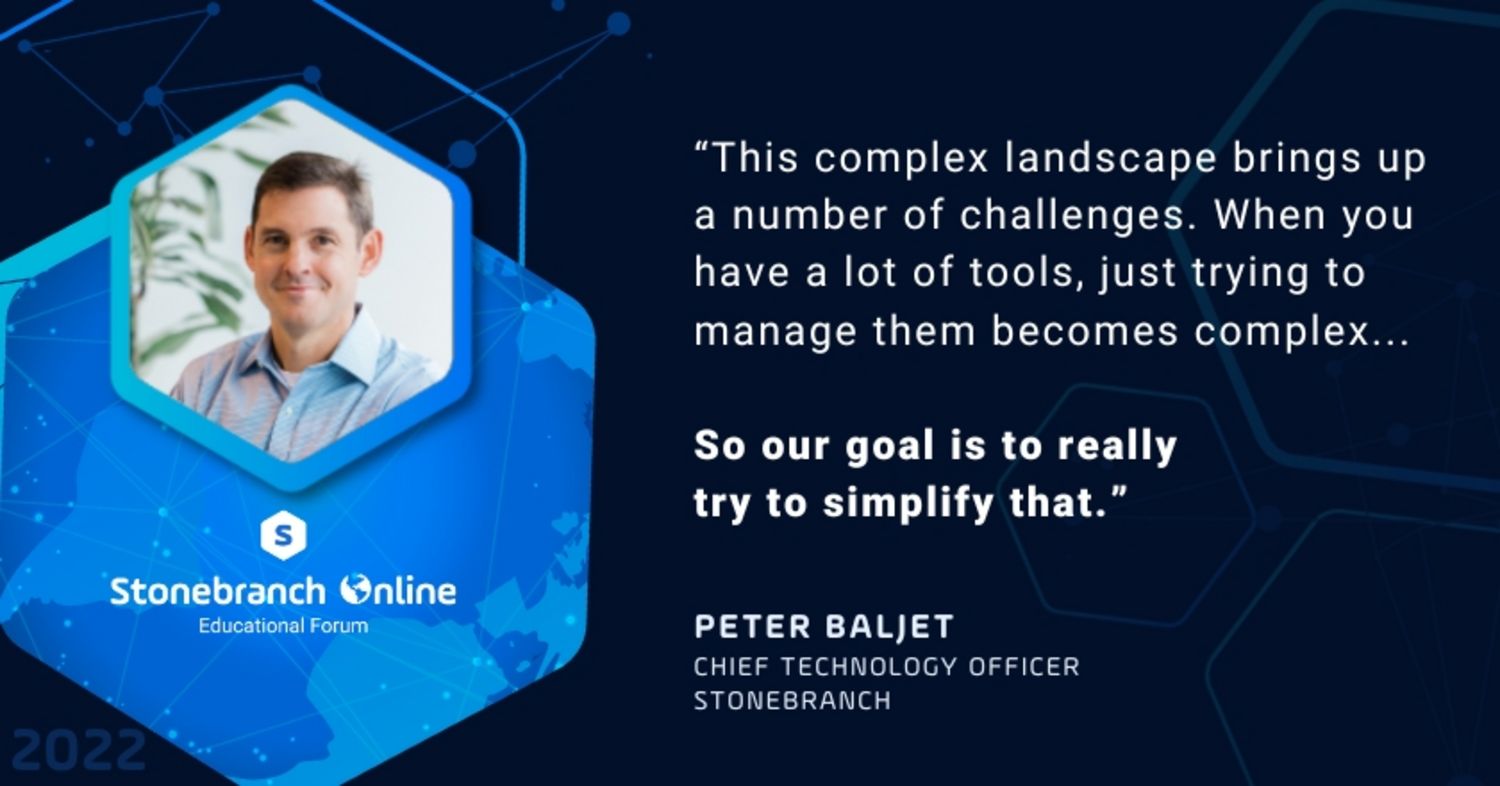
Every provider has its own systems and processes in place, with different protocols that need to be understood by the user. Add four, five, or even six of these to your IT toolbox, and mayhem can ensue on an operational level.
Peter explained that the goal of Stonebranch, then, is to vastly simplify the landscape by helping customers:
- Gain a centralized view of all operations and applications
- Leverage their current IT investments by simply integrating current systems with new automation tools
- Move away from vendor-specific tools, if desired
- Take a platform approach with useful dashboards and development layers
Key Areas of Focus
Integration, Peter says, is key to success here — and he identified a few areas of focus moving forward, some of which were:
- Integrate and orchestrate. With integrations and webhooks between different providers, Stonebranch can streamline processes using event-based (rather than poll-based) automation triggers.
- Cyber security. There’s a lot of identification data floating around in the cloud, creating opportunities for cyber attackers. Secrets management tools, however, eliminate the need for usernames and passwords to be stored locally.
- Jobs as code. New integrations with version control systems like GitHub make the build process smooth; changes on the UAC end are automatically reflected in the version control tools, and vice versa.
- Data pipeline orchestration. Stonebranch emphasizes providing centralized control and visibility of pipeline data. Auditability and traceability lead to a heightened level of observability.
Peter wrapped up his presentation by explaining that, in 2022, the movement of data across the hybrid IT landscape is growing ever more crucial for businesses — and so it’s a key priority to facilitate this movement as smoothly, securely, and traceably as possible.
How Stonebranch is Adapting
Next to the virtual podium was Colin Cocksedge, the Product Director at Stonebranch. Colin connected the dots between industry trends and the steps Stonebranch is taking to move with those trends.
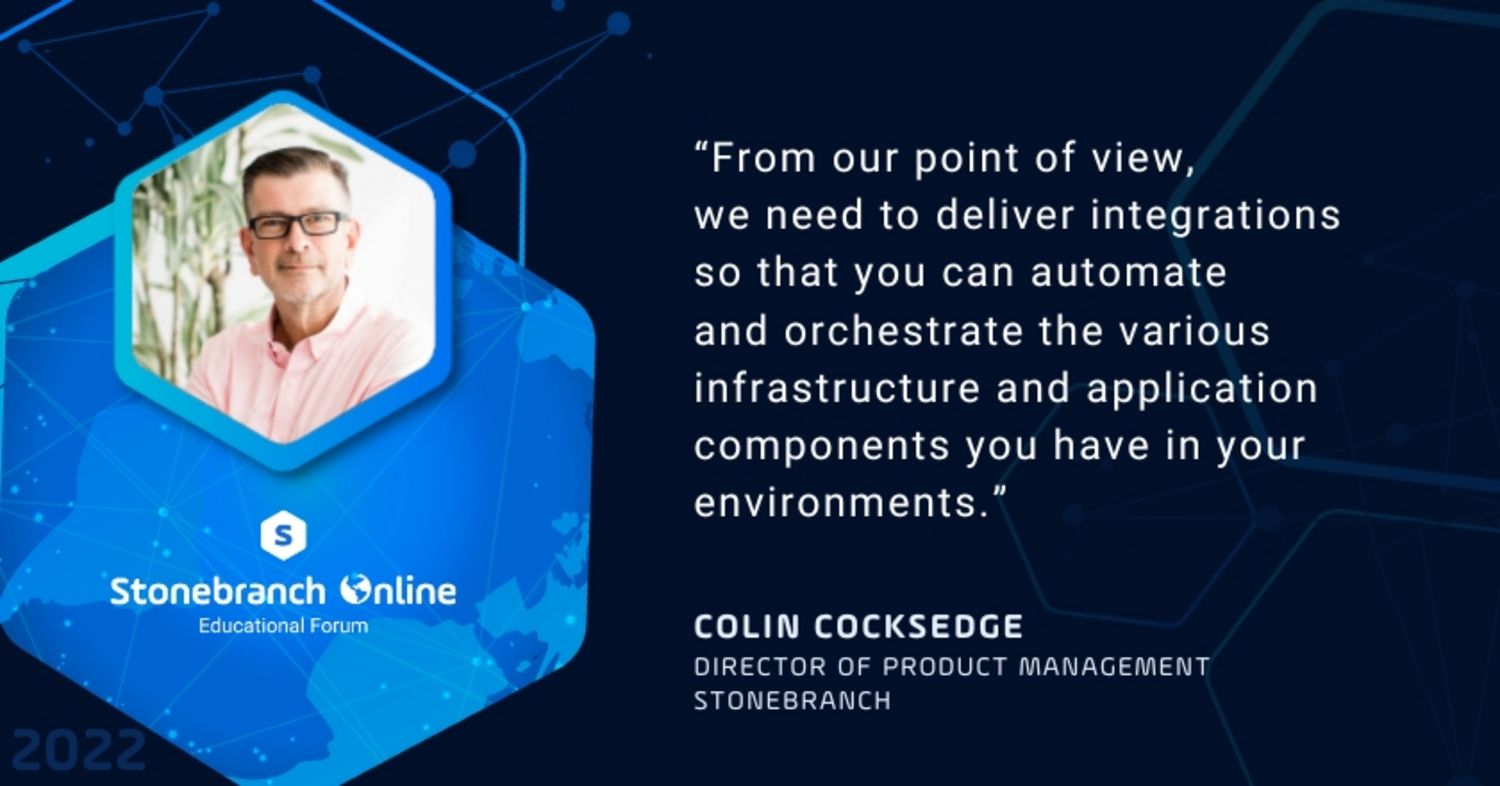
Recent Changes to the Universal Automation Center
Colin revealed that Stonebranch has been focusing on the user experience, interface, and product; a total refresh has made the UI more intuitive.
There’s a heavy emphasis on secrets management, too, as more companies pool their identification data in the cloud. New integrations are making it easier than ever for companies to protect and store their data non-locally.
Newly added inbound webhook capabilities allow Stonebranch to monitor and orchestrate workflows based on events, not repeated polling, which will better accommodate the 90 percent of companies who are using multiple service providers.
If you’re interested in hearing the full list of features being rolled out — including a headline in-house development in data and file transfers — watch the Product Update: What's New in UAC Version 7.3 webinar on-demand.
Start Your Automation Initiative Now
Schedule a Live Demo with a Stonebranch Solution Expert

